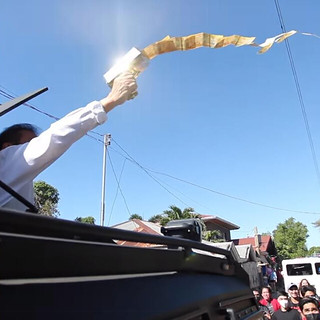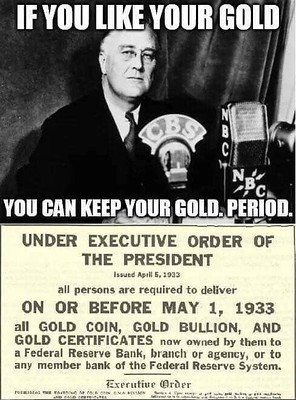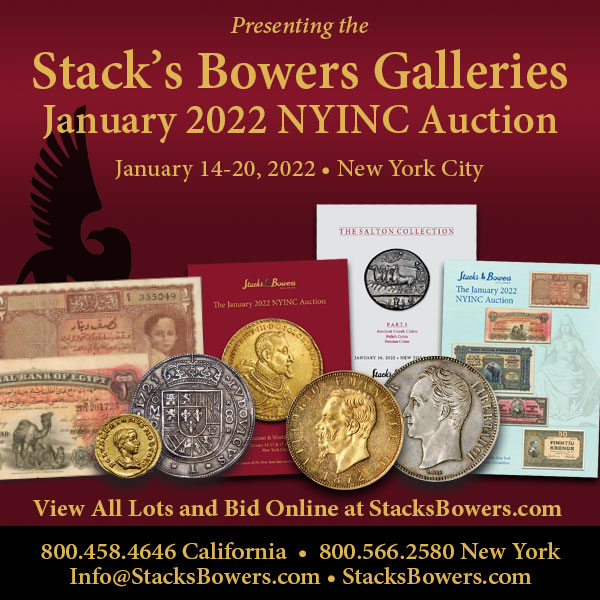
PREV ARTICLE
NEXT ARTICLE
FULL ISSUE
PREV FULL ISSUE
V25 2022 INDEX E-SYLUM ARCHIVE LOOSE CHANGE: JANUARY 9, 2022Here are some additional items in the media this week that may be of interest. -Editor In the you-just-can't-make-this-stuff-up department, a Mayor in the Philippines fires money at voters with gun. -Editor
A 43-second video published on Facebook, in which Singson shoots banknotes in denominations of 100 and 500 pesos (PLN 8-40) with a pistol, has been viewed nearly 3 million times. You can see the politician walking among the people, raising his hand and pressing the trigger of the gun, and money is pouring out of it. In other fragments of the video Singson throws banknotes in the same way from a stationary car, and people shove through trying to grab them.
Many Internet users praised the politician for his generosity in the comments, but there were also those who accused him of humiliating voters.
To read the complete article, see:
Scott Semans passed along this commentary on coin collecting in the context of inflation. Thanks. -Editor
But as time passed, Americans forgot the peril of letting politicians ravage their currency. In 1933, the United States had the largest gold reserves of any nation in the world, but fear of devaluation spurred a panic, which President Franklin Roosevelt invoked to justify confiscating Americans' privately owned gold. Roosevelt denounced anyone who refused to turn in their gold as a
I began collecting coins in 1965, the year President Lyndon Johnson began eliminating the silver in new dimes and quarters. At that point, the value of the dollar was falling due to federal deficit spending. The government printed new money to pay its debts, resulting in inflation. Rather than curtailing spending, Johnson debased the currency. He swore there would be no profit in
To read the complete article, see:
For those of us (OK, everybody) who spends time reading online, here's a great essay by Kate Harding on how to read critically. -Editor
Not every piece of short nonfiction writing is an opinion piece, crafted to advance a particular argument. This is the first thing we all need to understand. What you're reading now, for instance, is an essay—not an op-ed, a chapter, or a blog post. They tweet these things, they email them, they reply in comments, they blog about them and snitch-tag the author. There is no apparent awareness that, in writing a piece and publishing it, the author has said what they meant to say and turned the project of thinking about it over to the reader. Today's reader will simply not accept the baton being passed. If something is unclear, the author must expand; if something offends, the author must account and atone. Simple disagreement triggers some cousin of cognitive dissonance, where the reader's brain scrambles to forcibly reconcile beliefs that don't actually contradict each other. I am an old woman yelling at a cloud. I know this.
To read the complete article, see:
Arthur Shippee passed along this article about the fabled cache of Civil War gold in Pennsylvania. Thanks. -Editor Treasure hunters who believe they found a huge cache of fabled Civil War-era gold in Pennsylvania are now on the prowl for something as elusive as the buried booty itself: government records of the FBI's excavation. Finders Keepers filed a federal lawsuit against the Justice Department over its failure to produce documents on the FBI's search for the legendary gold, which took place nearly four years ago at a remote woodland site in northwestern Pennsylvania. The FBI has since dragged its feet on the treasure hunters' Freedom of Information Act request for records, their lawyer said Wednesday.
To read the complete article, see:
Wayne Homren, Editor The Numismatic Bibliomania Society is a non-profit organization promoting numismatic literature. See our web site at coinbooks.org. To submit items for publication in The E-Sylum, write to the Editor at this address: whomren@gmail.com To subscribe go to: https://my.binhost.com/lists/listinfo/esylum All Rights Reserved. NBS Home Page Contact the NBS webmaster 
|




